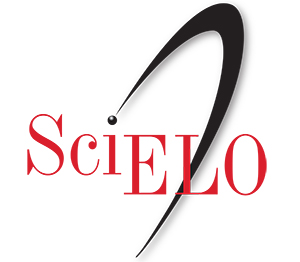¿Por qué Leibniz requiere del tiempo absoluto?
Keywords:
Leibniz, Clarke, Newton, tiempo absoluto, mónada, armonía preestablecida (es)Downloads
References
Adams, R.M. Leibniz: Determinist, Theist, Idealist. New York: Oxford University Press, xi. (1994).
Alexander, H.G (ed.). The Leibniz-Clarke Correspondence: Together with Extracts from Newton’s Principia and Opticks. Trad. H.G. Alexander. Manchester: Manchester University Press, l vi. (La Correspondencia se halla originalmente en GP vii: 347–44). (1956).
Ballard, K.E. “Leibniz’s Theory of Space and Time”. En: Journal of the History of Ideas (1960) 21 (1): 49-65.
Cassirer, E. “Newton and Leibniz”. The Philosophical Review (1943) 52 (4): 366-91.
Leibniz, G.W. “¿Qué es idea?”. En E. de Olaso (ed.). Escritos filosóficos. Madrid: Machado Libros. [2003] (1678). GP VII: 263-4.
Leibniz, G.W. [DM]. “Discurso de metafísica”. En E. de Olaso (ed.). Escritos filosóficos. Madrid: Machado Libros. [2003] (1686). GP IV: 427–62.
Leibniz, G.W. “Verdades primeras”. En: E. de Olaso (ed.). Ensayos filosóficos. Madrid: Machado Libros. [2003] (1686). Couturat: 518–23.
Leibniz, G.W. [NS] “Nuevo sistema de la naturaleza y de la comunicación de las substancias así como de la unión que hay entre el alma y cuerpo”. En: E. De Olaso (ed.). Escritos filosóficos. Madrid: Machado Libros. [2003] (1695). GP IV: 477–86.
Leibniz, G.W. [NE]. Nuevos ensayos sobre el entendimiento humano. Trad. J. Echeverría Ezponda. Madrid: Alianza. [1992] (1703–09). (Originalmente en GP IV: 39–519).
Leibniz, G.W. “Consecuencias metafísicas del principio de razón”. En: E. de Olaso (ed.). Ensayos filosóficos. Madrid: Machado Libros. [2003] (1708). Couturat 11–5.
Leibniz, G.W. “Comentarios a la metafísica de los unitarianos de Christoph Stegmann”. En: E. de Olaso (ed.). Ensayos filosóficos. Madrid: Machado Libros. [2003] (1708–10): 644–62.
Leibniz, G.W. [T]. Teodicea: tratado sobre la libertad del hombre y el origen del mal. Trad. E. Ovejero y Maury. Buenos Aires: Claridad. [1946] (1710). (Originalmente en GP VI: 6–487).
Leibniz, G.W. [M]. “Monadología”. En: E. de Olaso (ed.). Escritos filosóficos. Madrid: Machado Libros. [2003] (1714). GP VI: 607–23.
Leibniz, G.W. [PNG]. “Principios de la naturaleza y de la gracia fundados en la razón”. En: E. de Olaso (ed.). Escritos filosóficos. Madrid: Machado Libros. [2003] (1714). GP VI: 598–66.
Leibniz, G.W. “Principios metafísicos de la matemática”. En: E. de Olaso (ed.). Ensayos filosóficos. Madrid: Machado Libros. [2003] (1714–16). GM VII: 17–28.
Leibniz, G.W. [GP]. Die philosophischen Schriften von Gottfried Wilhelm Leibniz. Gerhardt, C.I. (ed.). Hildesheim: Olms, 7 v. (1875–90).
Locke, J. Ensayo sobre el entendimiento humano. Trad. E. O’Gorman. México: Fondo de Cultura Económica. [1956] (1690).
Newton, I. Principios matemáticos de la filosofía natural. Trad. E. Rada García, basada en la 3ª ed. Madrid: Alianza 2v. [1987] (1725).
Rada, E. (ed.). La polémica Leibniz-Clarke. Madrid: Taurus. (1980). (La Correspondencia se halla originalmente en GP vii: 347–440).
Rescher, N. “Introduction, Notes and Commentary”. En: N. Rescher
(ed.). G.W. Leibniz’s Monadology: An Edition for Students. Pittsburgh, Pa.: University of Pittsburgh Press. (1991).
Rodríguez-Pereyra, G. “Leibniz’s Argument for the Identity of Indiscernibles in His Correspondence with Clarke”. En: Australasian Journal of Philosophy (1999) 77 (4): 429–38.
Rutherford, D. “Metaphysics: The Late Period”. En: N. Jolley (ed.). The
Cambridge Companion to Leibniz. Cambridge/New York: Cambridge
University Press. (1995): 124–75.
Rutherford, D. “Philosophy and Language in Leibniz”. En: N. Jolley (ed.). The Cambridge Companion to Leibniz. Cambridge/New York: Cambridge University Press. (1995): 224–69.
Wilson, M. “Mecanics, Classical”. En: E. Craig (ed.). Routledge Encyclopedia of Philosophy (v. 1.0). London/New York: Routledge. (1998).
How to Cite
MODERN-LANGUAGE-ASSOCIATION
ACM
ACS
APA
ABNT
Chicago
Harvard
IEEE
Turabian
Vancouver
Download Citation
Article abstract page views
Downloads
License
Copyright (c) 2016 Universidad Nacional de Colombia

This work is licensed under a Creative Commons Attribution 4.0 International License.
The Creative Commons Attribution-NonComnercial-No Derivatives 4.0 Internacional License authorizes copying and redistributing the material in any means or format, provided that credit is granted to the authors and to Ideas y Valores as the source of the original publication. Copying or distributing the contents of the journal for commercial purposes is not allowed; neither is the adaptation, derivation, or transformation of the contents, without previous authorization by the authors and the editors of Ideas y Valores. For further information regarding the terms of this license, please consult http://creativecommons.org/licenses/by-nc-nd/4.0/legalcode.







1.jpg)
.png)


1.png)
.png)
.png)
.jpg)

.png)









